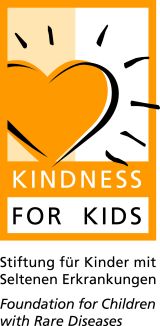 Patient registry
Patient registry
This patient registry arises from the project E-IMD
which has received funding
from the European Union,
in the framework of the
Health Programme 2008-2013
which has received funding
from the European Union,
in the framework of the
Health Programme 2008-2013
The E-IMD registry has been sustained after the end of the EU funding period by funding from the Kindness for Kids Foundation
About EIMD
E-IMD – Patient registry
Major aims of the study:
- To describe the natural history and outcome of organic acidurias and urea cycle defects
- Acute metabolic crisis
- Long-term organ-specific complications: e.g. brain, liver, kidneys, skeletal muscle, heart muscle, pancreas
- Survival rate
- Genotype/phenotype correlation
- Variability of the disease course
- Gender effects
- To describe and evaluate the efficacy and safety of current treatment strategies
- To compare the diagnosis, treatment and management of affected individuals in Europe
- To identify the major impact of a rare inherited disease for patients and their families on quality of life
Patients with any of the following diseases could be included:
A. Organic acidurias
- Methylmalonic aciduria (MMA)
- Propionic aciduria (PA)
- Isovaleric aciduria (IVA)
- Glutaric aciduria type 1 (GA1)
B. Urea cycle defects
- N-Acetylglutamate synthase (NAGS) deficiency
- Carbamylphosphate synthetase 1 (CPS1) deficiency
- Ornithine transcarbamylase (OTC) deficiency
- Citrullinemia type 1 / Argininosuccinate synthetase (ASS) deficiency
- Argininosuccinate lyase (ASL) deficiency
- Arginase 1 (ARG1) deficiency
- Hyperornithinemia-hyperammonemia-homocitrullinuria (HHH) syndrome / mitochondrial ornithine transporter 1 (ORNT1) deficiency
Visits:
- Baseline visit: once at the beginning
- Regular visits: at least once yearly
- Emergency (or other unscheduled) visits: unscheduled

